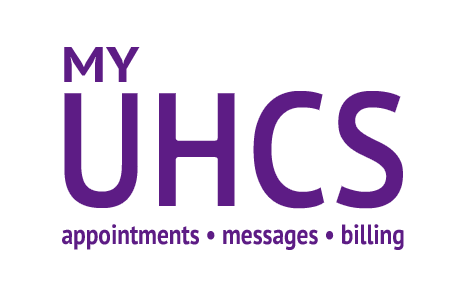Anxiety Information
Wellness Information
UHCS Services
Anxiety has many forms and sometimes it is challenging to know if or when to seek support. If you have any doubt, it would be helpful to contact UHCS to see a counselor and explore this together. Sometimes it's as simple as an appointment or two to explore ways to understand and deal with your anxiety. The counselors at UHCS are happy to help, so give us a call (262) 472-1305 to make a FREE & CONFIDENTIAL appointment.
Overview
College is an exciting time in life and there are a variety of new experiences and challenges students face. Many people experience some level of anxiety in their lives such as taking a test, doing a presentation or meeting new people. When these events occur, anxiety may be present but often times we persevere and recognize "it wasn't that bad" and move on. Yet, sometimes anxiety is more pervasive and harder to alleviate. For some people, anxiety manifests as excessive worrying. A person could worry about things they did or did not do, worry about the future or worry for no reason at all. Excessive worrying can be overwhelming and often limits our ability to function to our fullest capacity. Learning to treat and manage anxiety is the key to having a positive and meaningful college experience.
People experience a wide variety of anxiety symptoms. From a clinical perspective, it is important to discuss and explore all symptoms to determine if someone is experiencing an anxiety disorder. Anxiety disorders include: Generalized Anxiety (described above), Post-traumatic Stress (PTSD), Obsessive-Compulsive (OCD), Social anxiety, Panic attacks and Phobias. These conditions are treatable and there are a variety of clinical interventions used to help people manage these disorders.
Quick Tips
- Deep breathing-be purposeful about your breathing. Take breaths that expand your diaphragm (breaths that make your stomach rise). Focus on having your stomach go "out" when you take a breath "in". Use this technique to help calm and center you as many times as needed.
- Exercise-physical activity helps alleviate anxiety and excess energy. It often helps clear the mind and reduce the urgency of anxious thoughts. Moderate exercise will also release "feel good" chemicals in the brain and the deep breathing that occurs with exercise relaxes the body.
- Talk about it-friends and family members are great sources of support along with counselors or other providers. Often times talking about your anxiety will help decrease those thoughts simply because you're sharing them with someone.
- Limit your consumption of alcohol and caffeine-many people think these drugs will alleviate anxiety however both caffeine and alcohol often increase anxiety symptoms.
- Challenge your thinking-look more closely at your thinking patterns and ask yourself some questions. Are there actual facts to support my current thinking? Am I looking at the positive aspects of this situation? Are my expectations reasonable? Are there options I have not considered or overlooked?
Resources
- National Institute of Mental Health- Anxiety Disorders Overview
- Anxiety & Depression Association of America: Tips to Manage
Disclaimer
All information on this website is written by UHCS professional staff unless otherwise noted. No data is collected on visitors to this site. Financial Support for this web site is provided by University Health & Counseling Service, Division of Student Affairs, University of Wisconsin-Whitewater. This web site does not accept advertising.
This site is not meant to replace the advice of a health care or counseling professional. You should not rely on any information on these pages, or information generated for you by this site, to replace consultations with qualified professionals regarding your own specific situation. Some links take you to a source outside of UHCS. The owners of that site, not UHCS, are responsible for the content.



